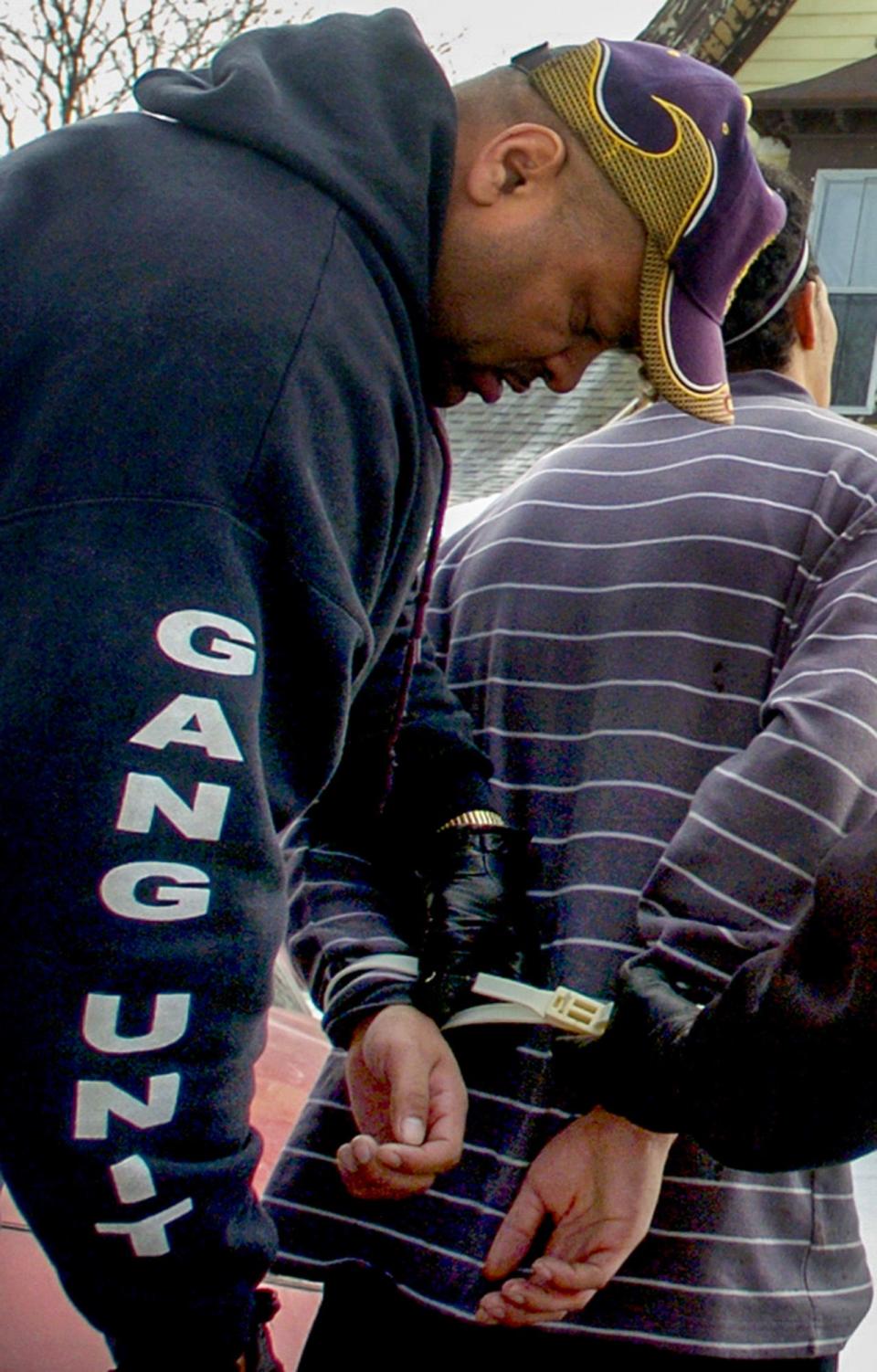Civil service promotional bias suit, initiated by Worcester officer, settles for $40 million
- Oops!Something went wrong.Please try again later.
A long-running class-action discrimination lawsuit initiated by a Worcester police officer who was passed over for promotion decades ago is expected to settle for $40 million.
Spencer Tatum, a now-retired Worcester officer who has battled the city and the state in court over civil service exams for decades, is one of about 600 officers of color expected to be compensated for an exam process a judge found to be discriminatory.
The case ‒ which Tatum and several other police officers filed against the state’s Human Resources Division in 2009 ‒ will have impacts beyond a monetary settlement, as the state has agreed to rework the exams it administers to officers looking to become sergeants, and is also revising other civil service exams.
“(This case) has been a long struggle, but what really makes me happy is knowing that, from now on, there will be tests that actually pick the best candidates, not just the people who can memorize the most,” Harold Lichten, the Boston labor lawyer who handled the case, said Monday.

The settlement, which was reached last week by Lichten’s firm and the office of Attorney General Andrea Campbell, includes an agreement that the state will make serious changes to its promotional exam for sergeants.
“We are pleased to resolve this longstanding litigation with meaningful and substantial compensation as outlined in the proposed settlement,” Campbell wrote in a statement Monday. “My office and I will continue to work with all interested parties to ensure that police hiring and promotion are more equitable and fair across the Commonwealth.”
The settlement ‒ which is scheduled for final court approval in May ‒ is expected to compensate about 600 police officers of color who applied for sergeant between 2005 and 2012 but were never promoted.
Officers who believe they meet the criteria can visit a website, promoexamsettlement.com, for more information. Claims are due by May 3.
According to the proposed settlement, qualifying members of the Boston Police Department are expected to receive at least $60,000 each, while members from other departments are expected to receive at least $45,000 each.
Black and Hispanic officers have pursued multiple lawsuits in the past two decades that argue the state’s multiple-choice promotional exams hurt candidates of color.
White officers, who make up the sizable majority of most departments, have historically performed better on the tests, court records show, and have been promoted at higher rates off the resulting score-ranked lists of candidates.
The state and cities ‒ including Worcester, which settled a similar case in 2021 ‒ have argued that the tests aren’t discriminatory because every person is treated the same.

But Lichten and the officers have argued that the tests are poor assessments of leadership that should have been reworked once it became clear candidates of color were disproportionately impacted.
“We’re going to get much better police sergeants (statewide) because of this,” said Lichten, noting that the new test will be developed in line with modern standards.
Lichten said most other states have already migrated away from multiple-choice tests probing book knowledge to more varied tests that stress traits like people skills and experience.
The state agreed to settle the case after Suffolk Superior Judge Douglas Wilkins ruled for the plaintiffs last October. A trial as to the “remedy” in the case was to begin this spring.
In his ruling, Wilkins opined that the state was well aware that its test had a disparate impact on candidates of color, but did nothing to change it.
“Instead of improving its assessment format, (the state) promulgated lists to provide a thin veneer of apparent justification for a discriminatory process,” Wilkins wrote. “The false appearance of a fair process created inaccurate beliefs and created unwarranted expectations among candidates and appointing authorities.
“Those beliefs and expectations have had a life of their own in perpetuating a discriminatory system that has injured qualified candidates and deprived the public of the benefits of having the best-qualified police sergeants.”
Tatum, a now-retired Worcester officer who was never promoted to sergeant, is one of two Worcester officers who started making their case to the state in the mid-1990s.
Tatum and Andrew Harris complained of discrimination to the state in 1994 and sued the city in Worcester Superior Court.
The city, after fighting the case for more than 20 years, settled it for $1.5 million in 2021, three years after Harris died.
“As long as I can keep fighting this, I’m going to keep fighting it because I know that I’m right,” Harris told the T&G not long before his death.
A judge, in a ruling prior to the city settling, found the city intentionally discriminated against minority officers by failing to live up to an agreement it reached with the state in 1988 to promote officers of color using a legal method other than civil service.
No officers of color were promoted to sergeant in Worcester between 1987 and 2001.
Harris was not a plaintiff in the newly settled lawsuit against the state because the promotional exam he took happened before the time period covered, Lichten said.
Lichten praised Tatum, one of several plaintiffs in the state case who will receive an extra $10,000 as original filers, for filing and staying with the litigation over decades.
“He started this thing way before anybody else. He’s always, morally, given me an impetus to follow through on these cases,” Lichten said.
Lichten opined that Tatum, who couldn’t immediately be reached Monday, was the exact kind of cop ‒ from people skills to experience ‒ who was passed over because they didn’t score high enough on the multiple choice test.
“If you walk the courthouse, he knows everybody. Everybody loves him,” Lichten said. “He was a great cop, but he never got promoted throughout his whole career, even though he’s the ideal person you’d want as a sergeant or a lieutenant.”
Wilkins’ ruling is already causing changes in multiple civil service promotional exams.
Administration of promotional exams for some firefighters was held up after Wilkins’ ruling last fall, while tests some police had already taken were not graded.
In an email Monday evening, Karissa Hand, press secretary for Gov. Maura Healey, wrote that the "majority of the Human Resource Division’s (HRD’s) civil service public safety promotional exams are being revised as a result of the Tatum decision and will require updated job analysis and new test development, including most police and fire promotional exams."
Hand said the state, after postponing the firefighters exam, developed a new test to comply with the ruling.
"The new written test was administered on March 25, 2023 to approximately 1,300 test takers," she wrote. "The March 25 exam administration included statewide and Boston fire lieutenant and captain titles.
"Boston district chief promotional candidates took one section of the exam on March 25, 2023, and will take the remainder of the test in early May 2023."
Hand said the 2022 and 2023 entry level police and fire exams "were not impacted and were able to move forward."
This article originally appeared on Telegram & Gazette: Civil service promotional bias suit, initiated by Worcester officer, settles for $40 million

